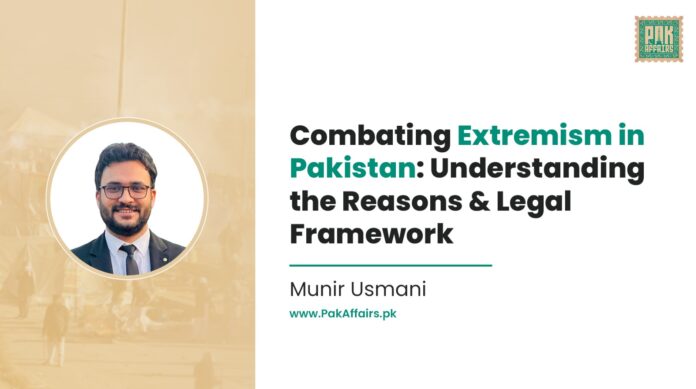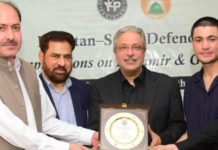Extremism has become a pervasive threat to Pakistan’s stability, security, and social fabric. The country has been plagued by various forms of extremism, including terrorism, sectarianism, and intolerance. To combat this menace, it is essential to understand the underlying reasons and the legal framework that can be employed to prevent and counter extremism.
Based on various research studies and reports, here are three main causes of violent extremism in Pakistan:
Socio-Economic Factors:
- Poverty and unemployment
- Lack of education and vocational training
- Inequality and social injustice
- Limited access to healthcare and basic services
- Regional disparities and uneven development
Pakistan’s socio-economic challenges create an environment conducive to extremist recruitment. Many young people, particularly in rural areas, lack opportunities and feel marginalized, making them vulnerable to radicalization.
Ideological and Religious Factors:
- Misinterpretation of Islamic teachings
- Radicalization through mosques and madrasas
- Influence of extremist groups (e.g., Taliban, Al-Qaeda)
- Sectarian divisions (e.g., Sunni-Shia)
Pakistan’s complex religious landscape and the spread of extremist ideologies contribute to radicalization. Some extremist groups exploit religious sentiments, creating an “us vs. them” narrative that fuels violence.
Political and Governance Factors:
- Weak governance and institutional failures
- Corruption and lack of accountability
- Military operations and human rights abuses
- Political marginalization of certain groups
- Pakistan’s role in regional conflicts (e.g., Afghanistan)
Pakistan’s governance challenges and political instability create an environment where extremist groups can thrive. Weak institutions, corruption, and human rights abuses erode trust in the government, making some individuals more susceptible to extremist ideologies. Additional factors that contribute to violent extremism in Pakistan include:
- Foreign funding and support for extremist groups
- Social media and online radicalization
- Lack of counter-narratives and counter-radicalization efforts
- Regional conflicts and geopolitical tensions
These factors are interconnected and feed into one another, creating a complex web of causes that contribute to violent extremism in Pakistan.
Constitutional and Legal Framework for Prevention:
The Constitution of Pakistan and various provisions of law provide a framework for preventing and countering extremism. Some of the relevant provisions include:
- Article 5 of the Constitution: This article emphasizes the importance of loyalty to the state and obedience to the Constitution, which can be used to counter extremist ideologies that promote violence and hatred.
- Article 19 of the Constitution: This article guarantees freedom of speech and expression, but also provides for reasonable restrictions in the interest of national security and public order, which can be used to regulate hate speech and extremist propaganda.
- Pakistan Penal Code (PPC): Sections 124-A, 153-A, and 505 of the PPC deal with sedition, hate speech, and incitement to violence, which can be used to prosecute extremist individuals and groups.
- Anti-Terrorism Act (ATA) 1997: This law provides a framework for preventing and combating terrorism, including provisions for the proscription of terrorist organizations and the prosecution of terrorist individuals.
- National Action Plan (NAP): Launched in 2014, NAP is a comprehensive plan to counter terrorism and extremism, which includes measures such as the establishment of a national counter-terrorism authority and the regulation of madrasas etc
In a nutshell, combating extremism in Pakistan requires a multi-faceted approach that addresses the underlying reasons and employs the available legal framework. By understanding the root causes of extremism and using the Constitution and laws to prevent and counter extremist ideologies, Pakistan can create a more peaceful and stable society.




